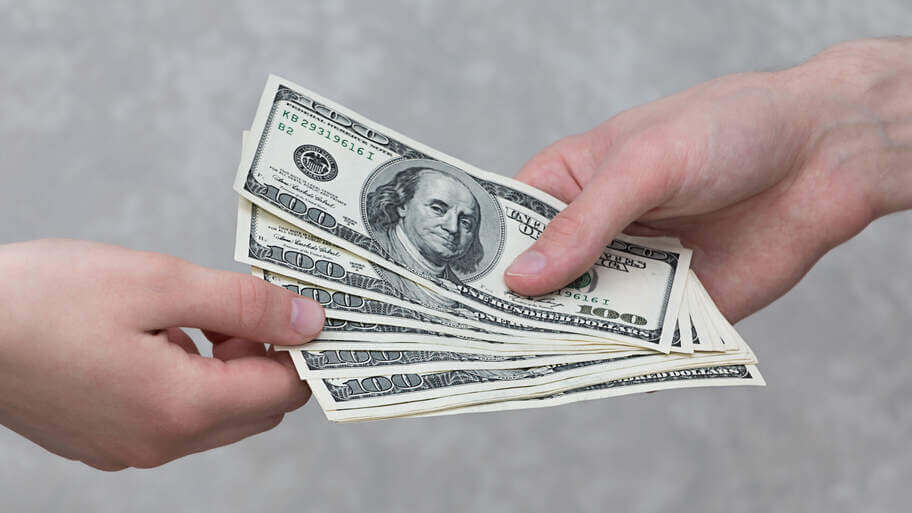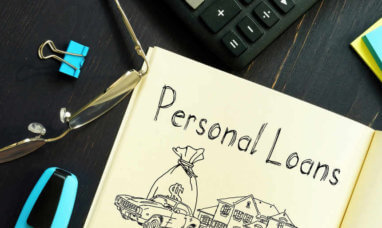A type of installment credit, personal loans offer borrowers a one-time cash payment for almost any need.
While this borrowing agreement can be secured with collateral for less interest, these loans are typically unsecured (without collateral), leading to higher interest.
Borrowers pay the loan back in monthly installments with interest over the loan’s lifetime (or the loan term).
When Should I Get a Personal Loan?
Personal loans are an option when you need money fast and can’t find a more affordable option (e.g., a low-interest credit card). The best personal loans are found if your credit card limit is too small for a pressing financial need. They also make sense when you don’t have collateral to offer lenders (such as a house or car).
Personal loans are ideal when a borrowing period is short. Over a shorter term, less interest will accumulate on the loan.
These loans generally have 12 to 60-month terms. A borrower may be expecting a large sum of money in a couple of months or years. A personal loan may benefit them by bridging the gap until they receive the money and can pay back the loan.
Here Are 5 Other Reasons to Receive a Personal Loan:
-
-
- Credit card debt consolidation (making many smaller debts into one bigger, usually more affordable, easier to track debt)
- Paying off other high-interest debts (e.g., a payday loan)
- Covering the cost of renovations and home improvements
- Financing a significant life event such as a wedding
- Increasing your credit score by paying the loan off promptly and proving to creditors that you’re a trustworthy borrower
-
Loan Interest Rates and Fees
There are several expenses associated with personal loans. You should understand how much a loan will cost you in the long run before taking it out. Here are some of the biggest expenses to look out for.
Loan Interest Rates:
An interest rate for personal loans, known as APR (annual percentage rate), is what you’re charged monthly to borrow.
Although APR is expressed annually, the interest gets broken down into smaller monthly chunks on top of your principal payment. This happens because your balance reduces as you keep paying off your loan in installments.
There are two types of APR:
-
-
- Fixed-Rate APR—Interest rates won’t change with fixed-rate APRs. What you sign up for at the beginning of the loan’s term is what you’ll pay every month.
- Variable-Rate APR—A variable-rate loan’s APR fluctuates up and down during your loan term. The rate is based on the Federal Reserve’s prime rate.
-
It’s then worth noting that the Fed’s most recent data has the current average APR at 9.34%.
Origination Fees:
Origination fees are one-time, upfront fees subtracted from your loan by the lender to cover processing and administration expenses. It usually costs you between 1% and 5% of the loan amount.
On a $20,000 loan with a 5% origination fee, you’d only receive $19,000 from the lender. But, you must still pay back the entire $20,000 on top of the interest.
Note that having a good credit score could help you avoid loans with origination fees.
Late Fees:
Late fees are charged when you don’t make installment payments on time.
Grace periods of one to five days after the due date are relatively common, allowing for bank processing.
Early Payoff Penalty:
Lenders want to get paid for the entire loan term to maximize the interest they receive. So they might penalize you for extra payments or paying the loan off early. These penalties could even amount to the remaining interest you would have owed.
Many lenders don’t charge early payoff penalties. Look for a lender who doesn’t enforce them. This way you can pay off your loan as quickly as possible and save money.
Personal Loans vs. Credit Cards
With an average of 18.04% interest for new offers and 15.10% for current customers, credit cards come at a much higher APR than personal loans.
Therefore, credit cards are much easier to get approved for than personal loans. And they’re best used for everyday purchases like groceries that you can quickly pay off.
Personal loans cater to substantial financial needs, such as paying for a wedding or home renovations. Unlike with credit cards, you won’t drown in the over-the-top interest.
Before You Take out a Personal Loan
Be aware that your credit score and credit history will impact approval and how favorable your terms are.
You also need to contemplate how much income you’re pulling in. The more you’re earning, the more reliable of a borrower you seem to lenders. Be prepared to provide employer contact information to a potential lender. They’ll want to ensure their prospective borrowers have steady employment.
Monthly debt obligations are also a factor. A $5,000/month income shrinks away fast when you’re paying off $4,500 in debt each month.
Pre-Qualify for a Personal Loan
Pre-qualifying for a loan allows lenders to preview your creditworthiness and lets you – the borrower – gather information on a potential loan.
Pre-qualifying is an initial step of the process. It doesn’t guarantee loan approval. A potential lender still needs to verify your information before money exchanges hands.
Top 3 Personal Loans of March 2022
Here are some of the best personal loan options right now.
1) SoFi:
-
-
- 680 minimum credit score
- 4.74% to 19.38% APR
- $5,000 to $100,000 loan amounts
- Best personal loan overall
-
2) Lightstream:
-
-
- 660 minimum credit score
- 2.49% to 19.99% APR
- $5,000 to $100,000 loan amounts
- Best personal loan for low interest
-
3) Upgrade:
-
-
- 580 minimum credit score
- 5.94% to 35.97% APR
- $1,000 to $35,000 loan amounts
- Best personal loan for poor credit
-
Frequently Asked Questions
Can I Pay my Personal Loan EMI Through a Credit Card?
It’s entirely possible to pay your personal loan EMI (equated monthly installment) through your credit card. But keep in mind that you’ll likely then be paying higher interest.
Is it Possible to Get a Quick Disbursal Personal Loan?
If you want your borrowed amount quickly, your best bet is an online personal lender for quick cash, who can transfer the cash into your account within 1-3 days after approval.
Will I Get Approved for a Personal Loan with High DTI?
If your debt-to-income ratio is high, it will negatively impact your credit score. But you can still get approved for a personal loan, just with less favorable terms.
Is it Possible to Get a Personal Loan with a Low Salary?
If you only make a 10k salary, personal loans may still be within your reach. There are many loan options available these days, some of which cater to people with low salaries. However, expect high interest and other less favorable terms.
Featured Image: Megapixl








